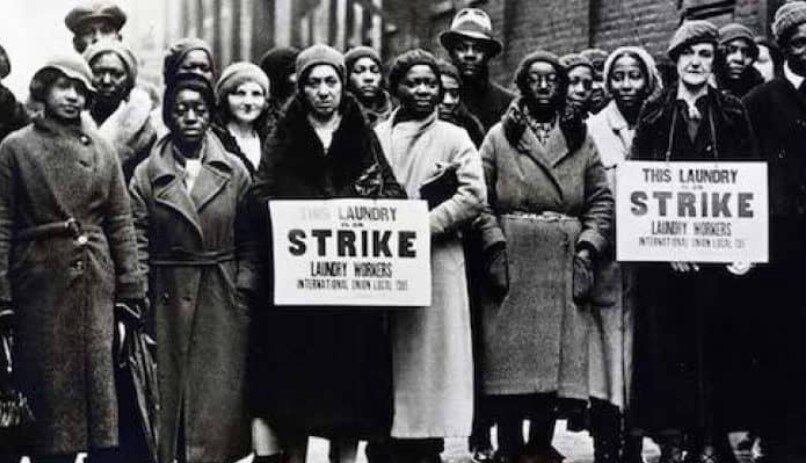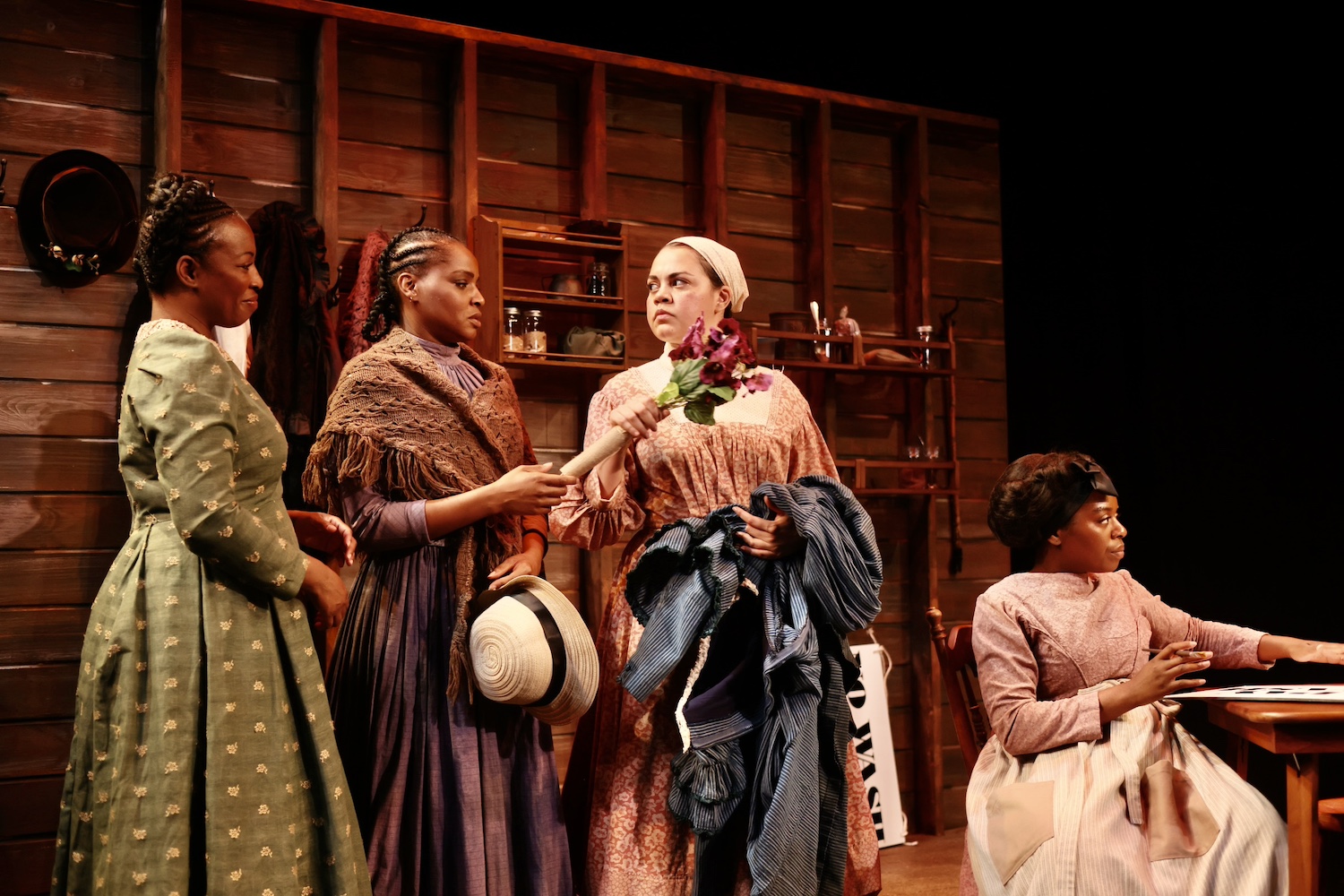***/***** (three stars out of five)
Modern laundry bears little to no relation to the backbreaking job it was right up until the twentieth century. Carrying water, soaking clothes in harsh lye, scrubbing soiled linens, putting the items through the wringer, and hanging the finished product out to dry could take all day–and that’s before the ironing. Tellingly, it was one of the first chores that a family would outsource as soon as it could afford it. Almost exclusively performed by women, this grueling labor was underpaid and disrespected. In 1881, Atlanta’s Black laundresses banded together to go on strike, demanding the right to set a fair wage for their labor.
In a show of interracial class solidarity that was stunning for the time, the city’s white washerwomen joined them, and the strike inspired workers across the city. The Wash, now playing at the New Federal Theatre, fictionalizes the story of this struggle, using historical sources to preserve a little-known history, while breathing life into a broadly representative cast of characters.
Kelundra Smith’s engaging script introduces us one by one to the members of a small laundry collective: Anna (Eunice Woods), its worried beating heart; Jeanie (Bianca LaVerne Jones), its merrily intrusive matriarch; Thomasine (Margaret Odette), a mother trying to gather the courage to leave a bad relationship; Charity (Alicia Pilgrim), a sweet newlywed; and Jewel (Kerry Warren), a young student who may be in love with a female classmate. They are joined by Mozelle (Rebecca Haden), a white woman who brings news of the strike across racial lines. The script dollops out a bit of personal growth or history to each of these women, but ultimately this is a play about a strike, and the characters’ personal stories are subsumed by the larger one.

As befits her character, Jeanie, Bianca LaVerne Jones’ performance dominates the stage. She is perceptive, forceful, always reacting to her castmates, and they are intensely aware of her right back. They accuse her of being meddling and judgmental, and she seems to agree that they need some meddling and judgment in their lives. Eunice Woods, as Anna, softens her friend’s harsher edges while holding so much tension in her own body that she seems about to snap. Margaret Odette, as Thomasina, reveals a flash of fire mid-play as she lays out the impossible situation she is trapped in as a Black woman in a racist society. All the women express an easy camaraderie born of cooperation and concern. They don’t just struggle and suffer: they tease, commiserate, argue, console, and gossip over literal “dirty laundry.”

Dressed in long-sleeved, high-necked, floor-length dresses (costumes, Gail Cooper-Hecht), the washerwomen evoke not just the high-minded ideals of fair pay, but the value of freshly laundered clothing in a time of limited, full-coverage wardrobes, little indoor plumbing, and zero air conditioning in the stifling heat of midsummer Georgia.
Jason Ardizzone-West’s set does an effective job of switching between a rustic nineteenth-century interior and a more stylized “not the cabin” exterior when the women interact with the outside world. Mounted on casters, the cabin walls move to display a blank slate of whitewashed plywood. Under Awoye Timpo’s sure-handed direction, The Wash embraces the didactic opportunity here, projecting actual newspaper quotes about the “Washing Amazons” (meant disparagingly) and maps of the strike area on the walls. The realistic/minimalist set mirrors the script’s dual brief: not just to imagine the lives of these women and others like them, but to bring this forgotten, yet relevant history back into the current conversation. The risks the Washing Society ran–arrests, fines, intimidation, beatings–were very real; but the risk of doing nothing was greater than they could bear.
The Wash. Through June 29 at the WP Theater ( 2162 Broadway, at West 76th Street). Produced by The New Federal Theatre.












